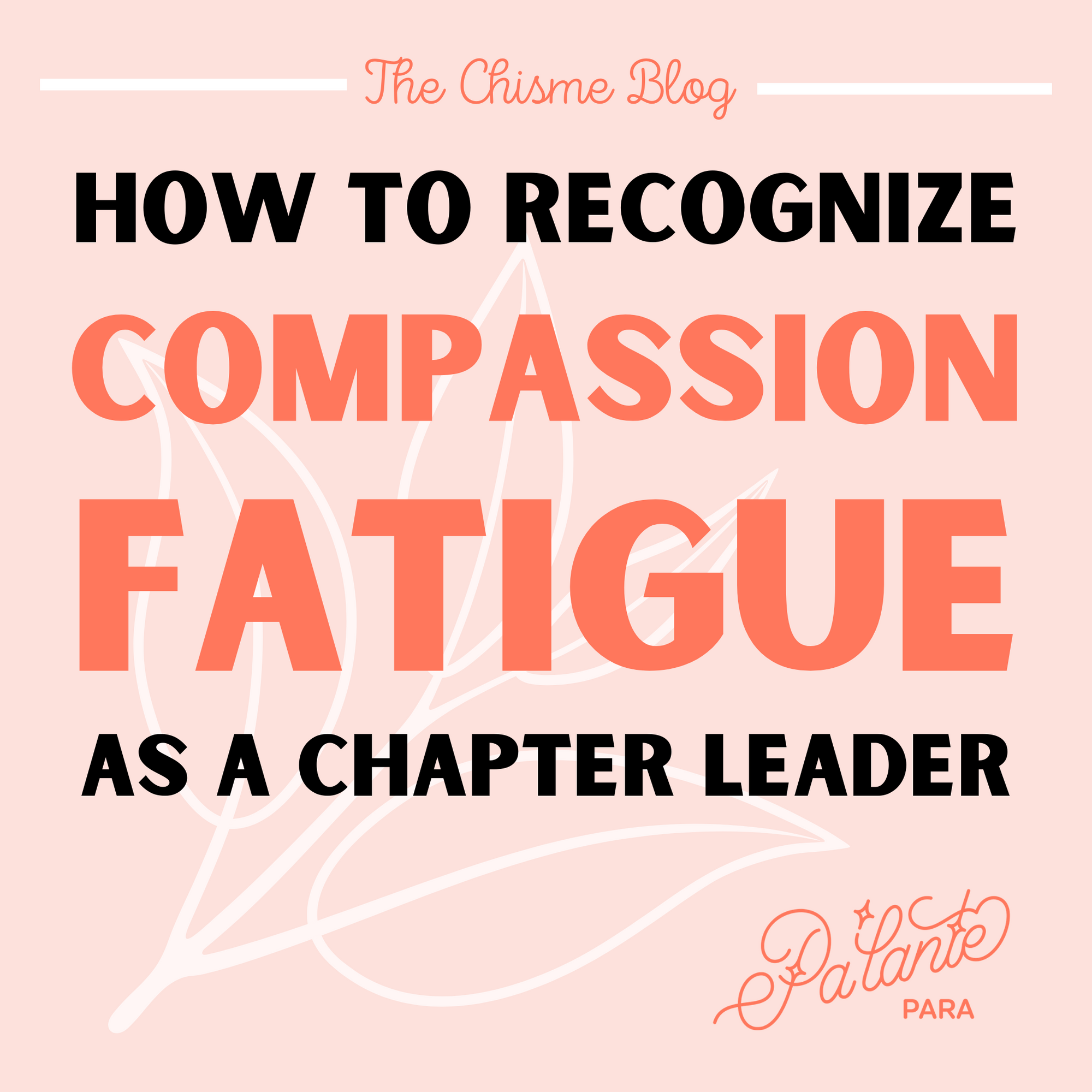How to Recognize Compassion Fatigue as a Chapter Leader
•Posted on August 13 2020

Are you the unofficial "therapist" of your chapter? Sororities can be an amazing source of support academically, professionally, and socially. At the same time, taking care of the fellow womxn in your chapter can be incredibly taxing on your mental health. Our multicultural Greek community has been experiencing its own #MeToo movement, putting many sorority womxn at risk for compassion fatigue. What is compassion fatigue? To get a basic understanding, we're going to start by going in-depth about burnout and secondary trauma.

Burnout
Burnout is something that everyone experiences at one point or another throughout college and beyond. It is caused by unchecked stress & hassles involved in daily life, such as an increased workload and typical school/job stressors -- or basically when you're doing too much. Most of the time, we can predict burnout. It comes when we have too many part-time jobs/side projects, during Intake, when we take too many classes or have an unbearable work project. Thankfully, we bounce back from burnout relatively easily by completing the project causing us stress, switching jobs/classes, getting a good night's sleep, and/or enjoying a fave hobby.

Secondary Trauma
Secondary Trauma is something that is caused by listening to someone else's story by re-experiencing or absorbing traumatic events. Folks who have experienced similar trauma(s) to the storyteller are most susceptible to secondary trauma, but anyone can experience it. It can be triggered by hearing similar stories from multiple people in a short timeframe (for example, it's often experienced by therapists that work with survivors of disasters), or seeing pictures/video of traumatic events.
Regardless of the circumstances, it's unpredictable and real. Bouncing back from secondary trauma is more difficult than burnout because it calls for long-term forms of self-care such as community building, therapy, and/or sustainable and healthy daily habits and coping mechanisms.

Compassion Fatigue
- Physical anxiety symptoms (muscle tension, digestive problems, breathing difficulties, heart palpitations, etc.)
- Irritability and impatience with others
- Self-doubt
- Difficulty sleeping
- Decreased productivity/lack of motivation
- Self-isolation
- Hopelessness

Compassion Fatigue in our Communities
While most think of compassion fatigue as something that is a concern for those in helping and counseling professions, first-generation students and womxn of color are most at risk of compassion fatigue as student leaders. First-gen students who have fought their way to college have an undeniably huge amount of pressure on themselves to be successful and self-reliant. Womxn of color have had to rely on each other for generations within institutions that were not made for us and do not have structures in place to support us. This rings true in the era of #MeToo, where we have to fight to be heard and understood.
Undergrads are not counseling professionals, though. There is no guide or manual on how to support peers in times of crisis when going to the police has proven to be a poor option for us and the campus counseling centers are often understaffed and/or full of white folks. In the process of helping each other, we can easily wear each other out and become exasperated in the process.
What Now?
It's a super complex problem that is not new (although we now have the language to talk about it). The myth of martyrdom suggests that we have to serve others before we serve ourselves, or risk being seen by others (and ourselves) as selfish. The truth is that we can support our friends and Hermanxs, but we can't pour from an empty cup. It is so important to take care of ourselves first before caring for others.
Creating healthy boundaries is a great first, immediate step. It's hard to tell others no and to not be on call 24/7 for your chapter, but forcing yourself to take breaks will give you the breathing room you need to recharge. That goes hand-in-hand with practicing mindfulness and recognizing when you are treading into burnout and/or secondary trauma territory.
Secondly, use your connections with your organization to get in touch with alumni who can give you guidance and be a source of support for you! For those with access to therapy and/or mentorship from campus admins, please consider utilizing these resources. You don't have to do it all alone.
This is not an exhaustive list of suggestions. Honestly, it's something I struggle with too sometimes as a student affairs professional and as an online mental wellness coach. Creating understanding and community around topics like this helps lay the groundwork for healing.

If this resonated with you and you would like to reach out about it, feel free to send me an email or DM! Thank you for reading, I hope it has given you some knowledge and food for thought. Stay safe, mujeres ✨


Comments
0 Comments
Leave a Comment